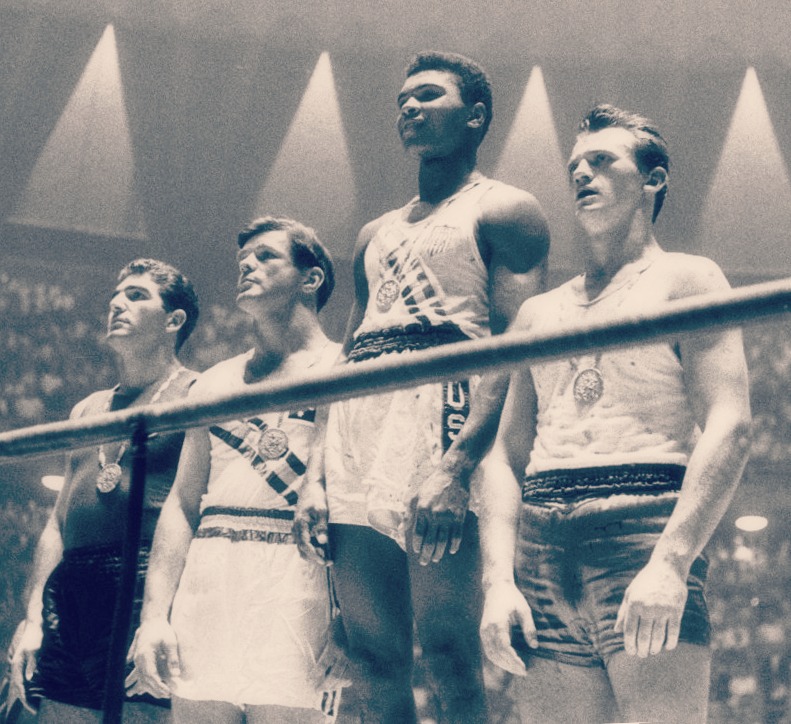
As the world bids farewell to Muhammad Ali, there’s no doubt about his lightning-fast moves and powerful punch. He will forever be remembered as the greatest, the most celebrated athlete of his time. However, I want to pay tribute to his other strengths—the rapid rhythm of his poetry and the force of his principles. It was these principles that propelled him into the civil rights movement and resonated with people far beyond the boxing ring.
When I heard the news of Ali’s passing last Friday, I couldn’t help but think about my childhood, how my father admired him, and the stories he would tell me of Ali’s greatness. It was the early eighties, and we were in the Dominican Republic, but even there, Ali’s name and achievements were known and respected.
One of the things I loved most about Muhammad Ali was the way he spoke—his poetry and his ability to play with words. What initially seemed like boastful affirmations turned into self-fulfilling prophecies. Moreover, he understood the power of his image in the fight for civil rights and his rebellion against racism.
There are many lessons we can learn from Muhammad Ali—about resilience, self-confidence, fearlessness, and so much more. But I want to focus on what made him an activist, an advocate, and so much more than a champion athlete. I want to remember Muhammad Ali, the courageous.
Farewell, Champ. Your legacy will forever impact this world.

wanted their moment with Ali, who at the time was yet to become a legend. Well, he had yet to become Muhammad Ali. The Beatles, from left, Paul McCartney, John Lennon, Ringo Starr, and George Harrison, take a fake blow from
the boxer then known as Cassius Clay, while visiting the heavyweight contender at his training camp
in Miami Beach, Florida on February 18, 1964.
“He who is not courageous enough to take risks will accomplish nothing in life.”
If I could use only one word to describe Muhammad Ali, it would be “courageous.” His actions, from the very beginning, were bold. He didn’t wait to be famous or powerful to exercise his courage. Of course, his stance against the Vietnam War, even at the cost of losing his championship title and facing jail, was one of the highest expressions of his bravery. Years later, facing Parkinson’s disease, he became an advocate and a symbol of hope for many people worldwide. His courage was not confined to the ring; it was evident in how he approached life. We can all draw on his memory to exercise a little more courage in our daily lives, to speak out against injustice, and to lead lives that pursue our highest selves.
“Service to others is the rent you pay for your room here on earth.”
The level of awareness and sense of duty that Ali had was admirable. This quote reflects his calling and commitment to serving others—not just because of who he was, but as a duty for all human beings. If we all led our lives invested in serving others, helping our neighbors, communities, and country, we would experience so much prosperity, harmony, and peace. During his boxing career, Ali helped the Black community and advocated for civil rights, living by this principle and encouraging others to do the same.
“Hating people because of their color is wrong.
And it doesn’t matter which color does the hating. It’s just plain wrong.”
This is probably one of the most powerful quotes Muhammad Ali ever said. Not just because he was speaking out against racism, but because he had the courage to specify that it doesn’t matter which side the hate comes from. He understood that merely addressing the unfairness and violence against Black people wasn’t enough to build a great society. He knew, before many others did, that ending discrimination in all its forms is the path to a thriving society where respect for all is the norm.
“The man who has no imagination has no wings.”
This quote captures another aspect of Ali’s extraordinary thinking. Through his imagination, he became what he wanted to be—the greatest boxing champion of the 20th century. Moreover, he stood for his principles and imagined a world with social justice, without racism, and with freedom. His vivid imagination gave him wings that lifted him to greatness. I like to think that the same imagination carried him through his illness, giving him wings when his body failed him, when he could no longer articulate or command the spotlight as he once did.
“The man who views the world at 50 the same as
he did at 20 has wasted 30 years of his life.”
In his youth, Muhammad Ali was smart, funny, and a great athlete. Of course, he made mistakes, as we all do. What I love about this quote, and why I chose it as my last, is that Ali reflected and changed later in life, showing the wisdom of a man who had lived and learned from his experiences.
As a sports fan and former sports journalist, I could write endlessly about the former heavyweight champion; his place among the great athletes of the 20th century is secure. However, I chose to reflect on his legacy of diversity and inclusion, his willingness to speak his mind, his audacity to defy the status quo, and his commitment to true freedom.
How will you remember Muhammad Ali?

Leave a Reply